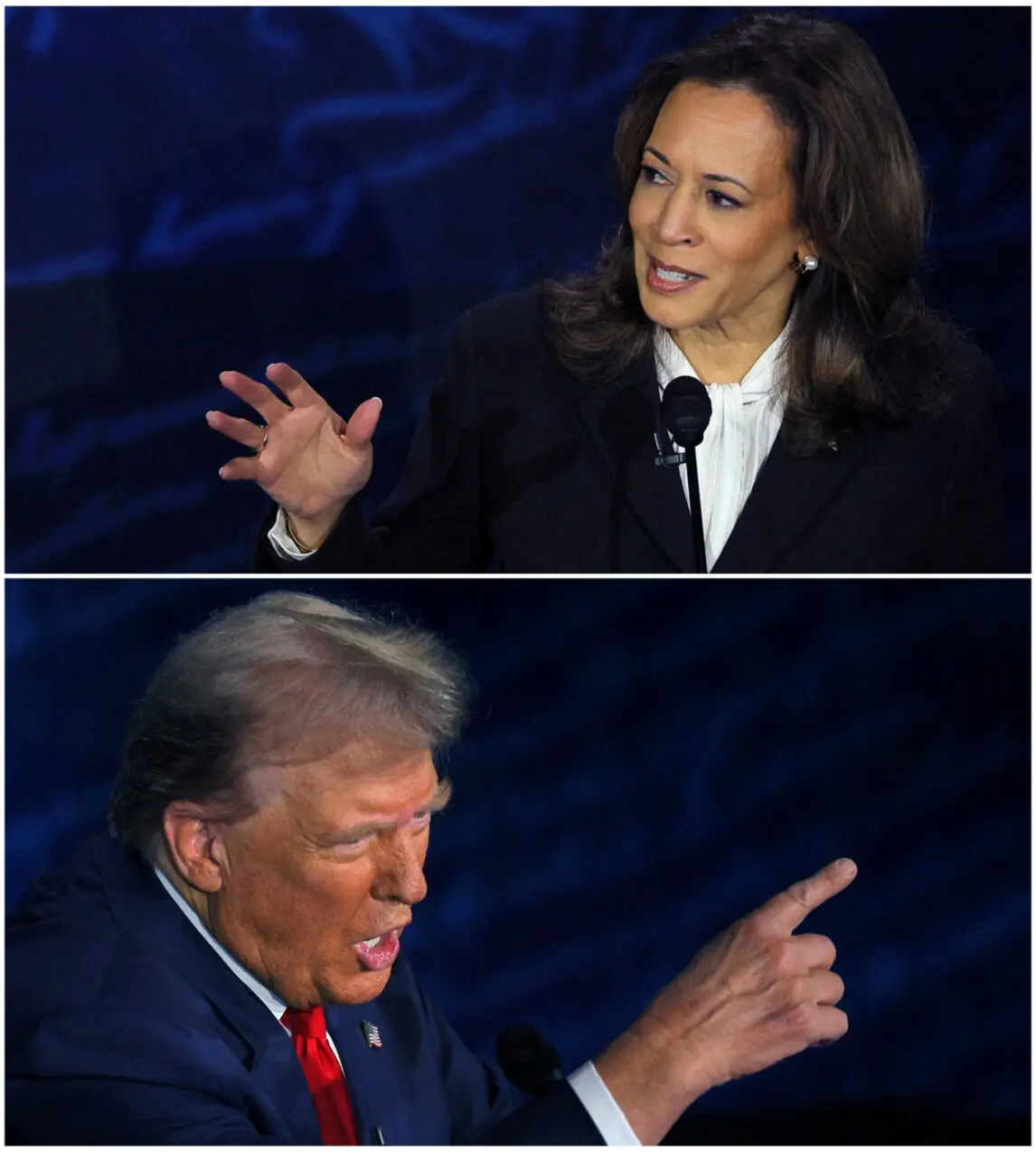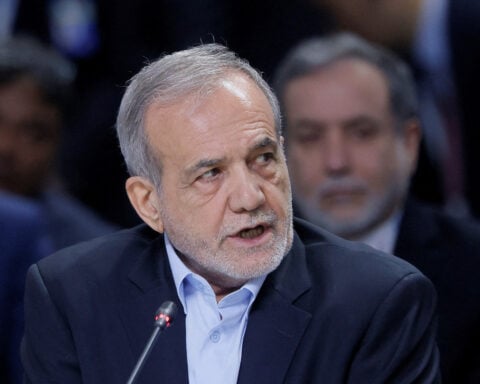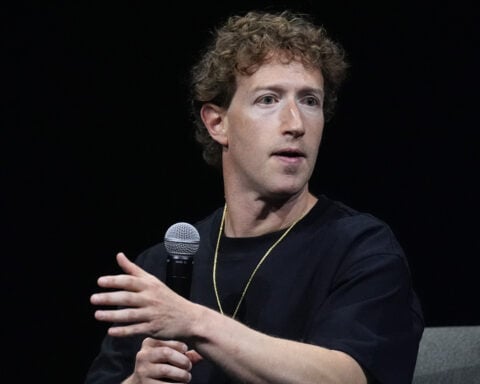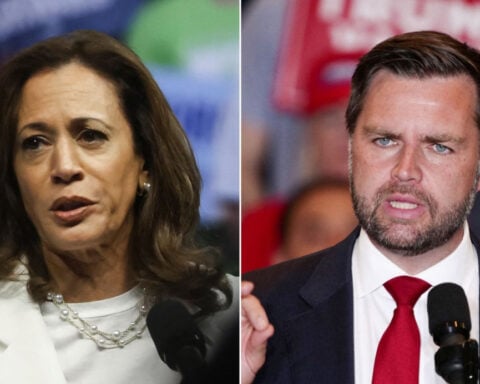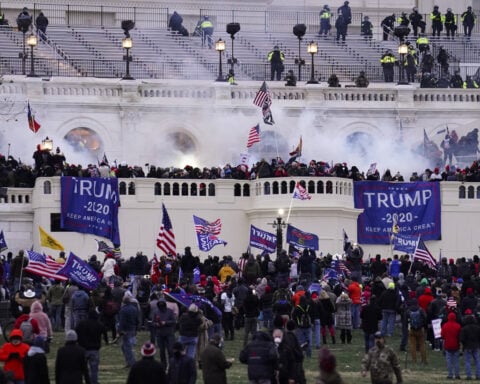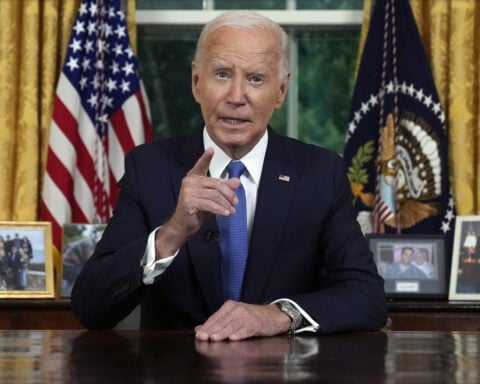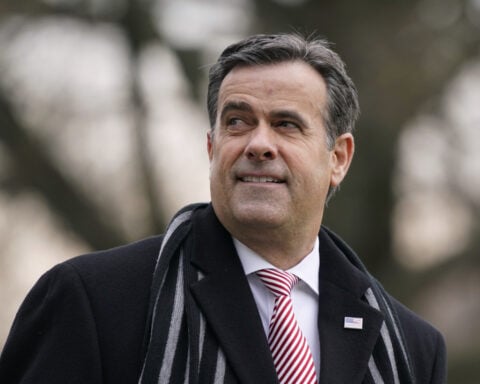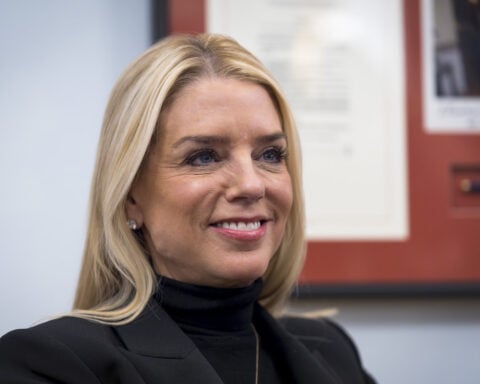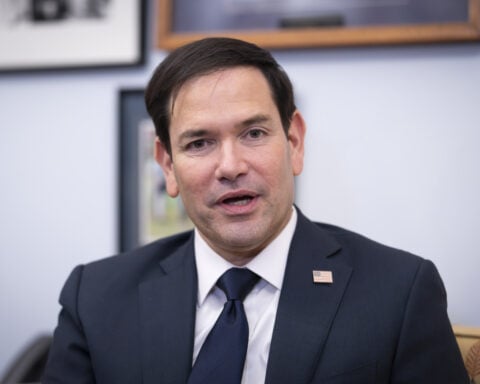By Jeff Mason
(Reuters) - As their high-stakes debate in Philadelphia commenced on Tuesday night, Vice President Kamala Harris walked across the stage, maneuvered around a lectern and stuck out her hand in greeting.
"Kamala Harris," she said to former President Donald Trump by way of introduction.
Meeting him for the first time in person, Harris forced her opponent to shake hands, something he and her predecessor as the Democratic presidential nominee, Joe Biden, did not do in June.
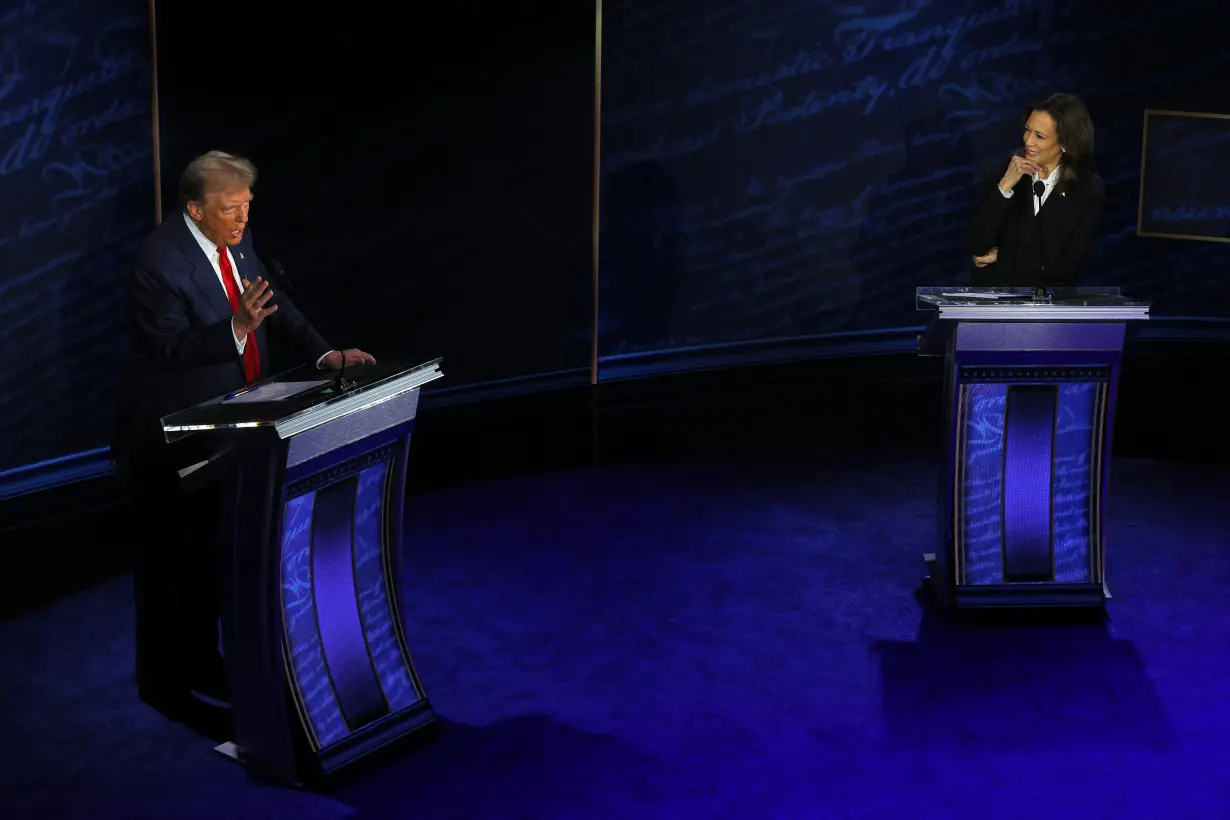
It was one of many moments at the debate in which the two candidates used body language, tone and demeanor instead of talking points or policy positions to do battle.
"It was a power move," said body language expert Mark Bowden, referring to Harris' pursuit of Trump for a handshake. "I don't think he was expecting that."
The vice president maintained an expressive face throughout the evening, raising her eyebrows, laughing, and looking on as if in disbelief as Trump spoke, moments that were quickly snapped and recirculated by her fans on social media. At times she looked at the Republican nominee quizzically and remarked that his comments were "not true."
Trump mostly kept a serious expression on his face, while sometimes smiling with pursed lips or shaking his head. He accused Harris of mistruths as well. "There she goes again. It's a lie," he said at one point.
Throughout the debate, both candidates raised their voices. Harris, 59, frequently turned towards her opponent as she spoke, at one point appearing to scold him. Trump, 78, mostly looked straight ahead.
"Their approaches were very different," said behavioral scientist Abbie Marono. "He didn't address her; he didn't orientate toward her when he was speaking ... She was a little antagonistic towards him, but she was also very emotionally responsive towards him."
Trump sought at one point to turn the table on Harris when she interjected, telling her to wait because he was talking. "Does that sound familiar?" he asked, in an apparent reference to her 2020 debate with then vice presidential candidate Mike Pence, whom she rebuked for doing the same.
Harris often returned to talking points, repeating policy proposals about housing and small businesses and calling for the country to "turn the page" on Trump.
"It's obvious that she's memorized things," said Lillian Glass, also a body language and communications expert, who said she thought Harris came across as inauthentic. "She speaks in staccato."
GETTING UNDER TRUMP'S SKIN
Trump's aggressive style has helped and hurt him on debate stages. His personal attacks during the 2016 Republican primary and the general election against Hillary Clinton propelled him to the nomination and the presidency.
But a 2020 debate against then former Vice President Biden, during which Trump interrupted repeatedly, backfired, turning off exhausted viewers.
Trump took a more disciplined approach in his June debate with President Biden, 81, whose multiple stumbles exacerbated Democrats' worries about his age and spurred his departure from the race.
On Tuesday night, Trump limited his personal attacks on Harris, aiming primarily at her policies. But he continued attacks against Biden, prompting Harris to underscore that she was now his opponent.
"You're not running against Joe Biden, you're running against me," Harris said.
The vice president repeatedly sought to goad Trump. Harris brought up the topic of rallies, a sensitive issue for the former reality television host, and Trump took the bait, falsely suggesting she was paying people to attend her political events.
"She is very clearly intentionally getting under his skin. He is unable to control himself. You can see when she lobs something out there and he just grabs it and goes full unhinged around ridiculous issues," said Adrianne Shropshire, executive director BlackPAC, a left-leaning political action committee that focuses on Black voter mobilization and engagement.
At the end of the debate, both candidates, dressed in dark suits and American flag pins, walked offstage. They did not shake hands again.
(Reporting by Jeff Mason; Additional reporting by Allende Miglietta; Editing by Daniel Wallis)

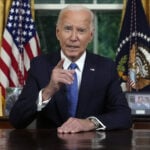 Biden promised to turn the page on Trump. Now he's being replaced by him
Biden promised to turn the page on Trump. Now he's being replaced by him
 Firefighters prepare for increasing gusts following brief reprieve for LA area
Firefighters prepare for increasing gusts following brief reprieve for LA area
 John Ratcliffe, tapped by Trump to lead the CIA, will face questioning in the Senate
John Ratcliffe, tapped by Trump to lead the CIA, will face questioning in the Senate
 Nippon Steel wants to work with Trump administration on US Steel deal, Mori tells WSJ
Nippon Steel wants to work with Trump administration on US Steel deal, Mori tells WSJ
 After cable damage, Taiwan to step up surveillance of flag of convenience ships
After cable damage, Taiwan to step up surveillance of flag of convenience ships
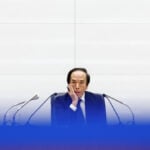 BOJ will raise rates if economy, price conditions continue to improve, Ueda says
BOJ will raise rates if economy, price conditions continue to improve, Ueda says
 Manatees congregate in warm waters near power plants as US winter storms graze Florida
Manatees congregate in warm waters near power plants as US winter storms graze Florida
 AAPI adults prioritize immigration, but split on mass deportations: AP-NORC/AAPI Data poll
AAPI adults prioritize immigration, but split on mass deportations: AP-NORC/AAPI Data poll
 As Los Angeles burns, Hollywood's Oscar season turns into a pledge drive
As Los Angeles burns, Hollywood's Oscar season turns into a pledge drive
 As fires ravage Los Angeles, Tiger Woods isn't sure what will happen with Riviera tournament
As fires ravage Los Angeles, Tiger Woods isn't sure what will happen with Riviera tournament
 Antetokounmpo gets 50th career triple-double as Bucks win 130-115 to end Kings' 7-game win streak
Antetokounmpo gets 50th career triple-double as Bucks win 130-115 to end Kings' 7-game win streak
